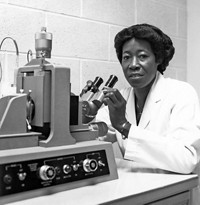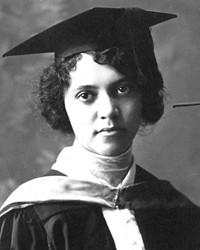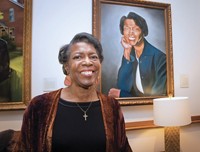Advertisement
Grab your lab coat. Let's get started
Welcome!
Welcome!
Create an account below to get 6 C&EN articles per month, receive newsletters and more - all free.
It seems this is your first time logging in online. Please enter the following information to continue.
As an ACS member you automatically get access to this site. All we need is few more details to create your reading experience.
Not you? Sign in with a different account.
Not you? Sign in with a different account.
ERROR 1
ERROR 1
ERROR 2
ERROR 2
ERROR 2
ERROR 2
ERROR 2
Password and Confirm password must match.
If you have an ACS member number, please enter it here so we can link this account to your membership. (optional)
ERROR 2
ACS values your privacy. By submitting your information, you are gaining access to C&EN and subscribing to our weekly newsletter. We use the information you provide to make your reading experience better, and we will never sell your data to third party members.
ACS News
Landmark designation for Marie Maynard Daly
ACS Landmarks program recognizes Daly as the first Black woman to earn a chemistry PhD in the US
by Sophie Rovner, special to C&EN
June 25, 2023
| A version of this story appeared in
Volume 101, Issue 20

In 1947, Marie Maynard Daly made history. The Columbia University student became the first Black woman to graduate with a PhD in chemistry in the US. During her subsequent career, she published important research in biochemistry, the origins of some diseases, and basic biological science. On May 19, 2023, the American Chemical Society (ACS) honored Daly’s achievements with a National Historic Chemical Landmark designation ceremony at Columbia.
ACS established the Landmarks program in 1992 to recognize seminal events in the history of chemistry and to increase public awareness of chemistry’s contributions to society. Associated lesson plans, including one about Daly, are part of the resource library from the American Association of Chemistry Teachers.
The celebration for Daly drew representatives of the ACS Board, the New York ACS local section, Columbia, the ACS Division of the History of Chemistry, students, and many other attendees.
“This designation is particularly meaningful at a time when society as a whole is dealing with systemic racism and inequality,” ACS president-elect Mary K. Carroll said at the event.
Carlos J. Alonso, dean of the Graduate School of Arts and Sciences, described Daly as a trailblazer and a catalyst for change, while acknowledging the sacrifices and indignities involved with being the first to traverse new terrain.
The occasion included a symposium and video about Daly, as well as personal recollections from her step-granddaughter, Carly Rae Reid. “Dr. Daly demonstrated that introversion, womanhood, and Black excellence are not mutually exclusive,” she said. Reid also contributed mementos for a display at Columbia.
Daly, who was born in Queens in 1921, earned a bachelor’s in chemistry at Queens College in 1942. But she wanted to go further so that she could conduct research. It was rare at the time for women to be admitted to graduate school, but Daly persevered and was awarded a master’s degree from New York University in 1943.
She entered Columbia as a graduate student in chemistry the following year. Most universities had only male professors, but Daly joined the lab of Mary Letitia Caldwell, Columbia’s sole female faculty member in the department. Caldwell was a celebrated researcher doing cutting-edge work on enzymes.
After earning her doctorate in 1947, Daly landed a research position at Rockefeller University (then known as Rockefeller Institute) with Alfred Mirsky, one of the foremost geneticists of the day. Together they investigated the architecture of proteins.
In 1955, Daly pivoted to medical research when she joined the Columbia University College of Physicians and Surgeons. Her team found important links among atherosclerosis, aging, and high blood pressure. Daly formed a close partnership with Quentin Deming, a medical doctor and heart disease researcher.
The two continued their fruitful collaboration when they took their skills to the Albert Einstein College of Medicine in 1960. Daly was hired as an assistant professor of biochemistry and later awarded an associate professorship and tenure.
Daly and her collaborators did groundbreaking research on the impact of diet and cholesterol on arteries; they studied the link between hypertension and heart attacks and investigated the effects of smoking on lung health.
Daly also spearheaded efforts to recruit, train, and support Black students. During the Landmark ceremony, ACS CEO Albert G. Horvath noted that the society shares her passion for ensuring diversity in future generations of scientists.
Daly died Oct. 28, 2003, at the age of 82.
This is Columbia’s second ACS Landmark. The first was awarded for the pioneering chemistry research conducted at the university’s Havemeyer Hall.





Join the conversation
Contact the reporter
Submit a Letter to the Editor for publication
Engage with us on Twitter